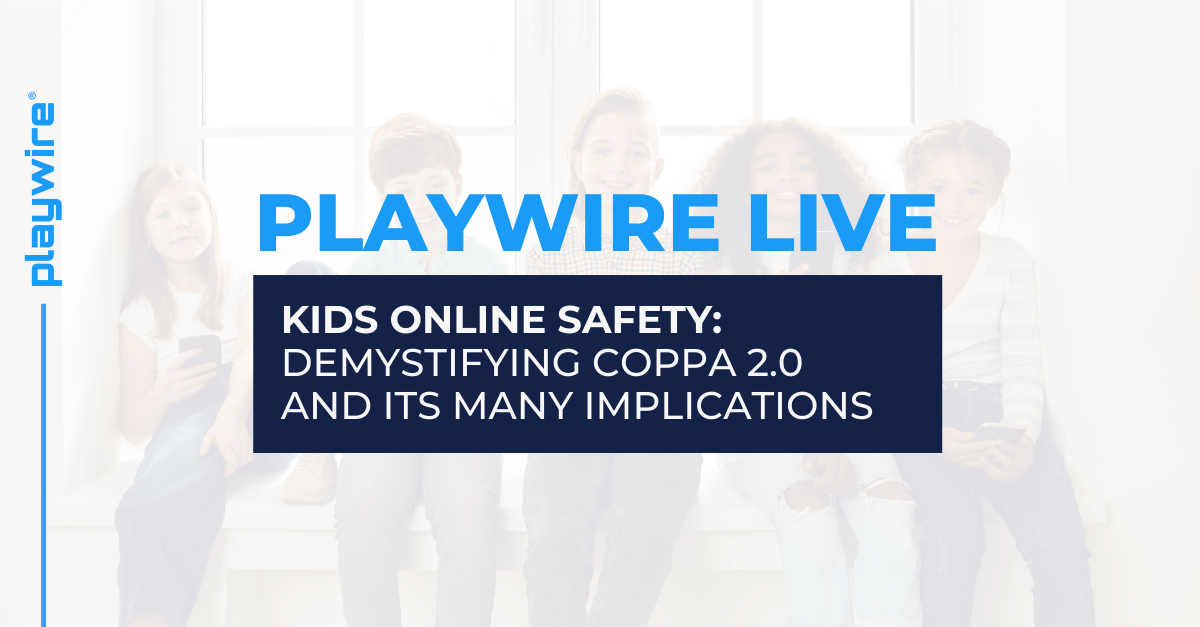
The Complete COPPA Resource Center
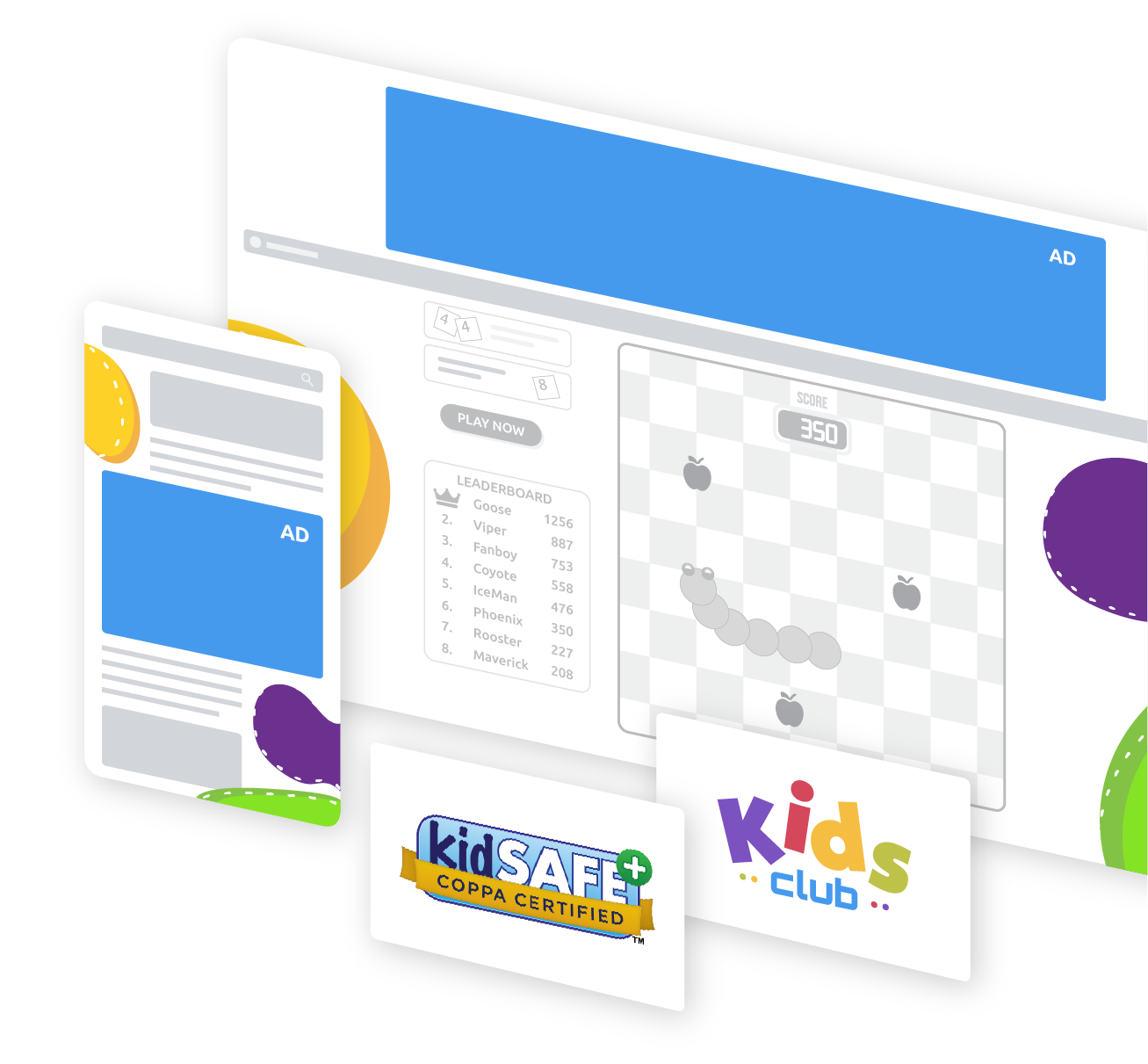
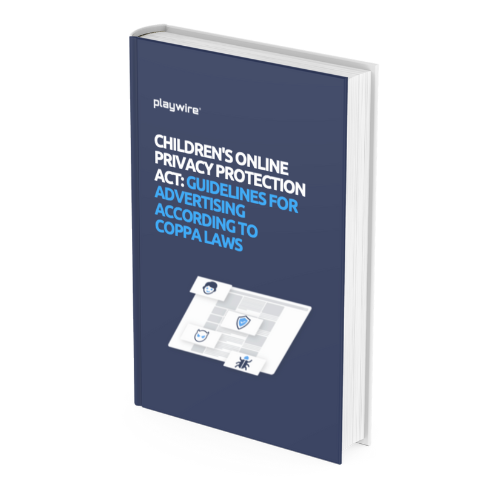
Guidelines for Advertising According to COPPA Law
GUIDE
In this comprehensive COPPA guide, learn everything you need to know in order to safely and effectively monetize your content with advertising while remaining compliant with COPPA laws.
What Publishers and Advertisers Need to Know about COPPA
What is COPPA?
Learn more about what COPPA laws entail and how to safely begin building your ad monetization strategy if your content falls within COPPA legislation.
Why COPPA Rules are So Important
Following COPPA rules are critical for publishers of kids' content for more reasons than one. Learn those reasons here.
Changes in COPPA Threaten the Lifeblood of Educational Games for Kids
Learn about some of the most recent changes to COPPA laws and how they are putting children's publishers at risk.
Buyer Beware: Programmatic Ads May Not be COPPA Compliant
While a large majority of digital advertising is now bought programmatically, it's not necessarily the safest method for kids' publishers. Learn why.
COPPA 2.0: Major Updates to Kids’ Online Safety Legislation and What it Means for Publishers
VIDEO | ARTICLE
A big update to the Children's Online Privacy Protection Act (COPPA) is on the horizon and it's called COPPA 2.0. In most of its proposed forms, COPPA 2.0 poses serious threats to online advertising and content creators who reach children and teens meaning now is the time to prepare for the impending changes. Here's everything you need to know to prepare.
Ad Monetization & COPPA Compliance
How to Run Digital Ads in Line with COPPA Restrictions
3 Ways to Follow COPPA Law with Advertising
Learn 3 unique ways to follow COPPA law with advertising that assure that both advertisers can achieve their goals and publishers can increase their revenue.
How COPPA Regulations Affect the Ads on Your Website
How the COPPA Act Affects Kids' Apps
COPPA Compliance Training for Publishers
VIDEO
Maintaining COPPA compliance is no easy feat, no matter how well you understand the complexities of digital advertising and online safety practices. So, to help simplify the subject we've created a step-by-step video tutorial that answers all of the most important questions publishers typically have about COPPA. Click below to get started!
Frequently Asked Questions About COPPA
Who is subject to COPPA?
Anyone who owns or operates a web property, including website, desktop, and mobile app owners, that is directed toward children younger than 13 is subject to COPPA laws.
Now, the question gets more complicated when you try to define the "directed toward children" part. For example, is your web property directed toward children if you have cartoon-based video games on it?
These are some of the murky areas that the Federal Trade Commission (FTC) has tried to clarify over the years. We're left with this general rule of thumb: If it looks like it's directed toward children, it's probably subject to COPPA - even if it isn't exclusively meant for young kids.
What happens if you violate COPPA?
If you violate COPPA, you get fined. And you might end up in court, entangled in expensive litigation with the FTC or a state agency attempting to hold you accountable.
Fines start at $46,517 per violation, but single violations are kind of rare. Often, violations come in multiples. That's why the average fine levied by the FTC for COPPA violations hovers around $400,000.
Do COPPA laws apply to all forms of data collection?
No. COPPA laws only apply to data that would violate the privacy of the child. That means that anonymous metrics like time on site, clicks, impressions, video completions, and similar are all fair game as long as they are truly anonymous.
The other thing to remember is that data collection involving children younger than 13 is difficult - but not impossible - to do for children's publishers. COPPA doesn't forbid it outright. It simply requires that you provide parents with direct notice and the ability to give verifiable parental consent to data collection on behalf of their kids.
Does COPPA make it illegal to run ads as a children's publisher?
Absolutely not. COPPA doesn't make running ads illegal for children's content creators. It does, however, make it more difficult to run targeted advertising in the traditional way - the way known to lead to the highest CPMs.
That's because it's all about data. Under COPPA, it's hard to collect the kind of user data that advertisers find valuable. That means you're less likely to have information to divide into valuable audience segments that will entice buyers to pay more for your inventory.
However, collecting data isn't expressly forbidden. There are ways - albeit more difficult ways - to get the proper, verifiable consent to collect children's personal data and remain in compliance with COPPA.
And don't forget direct sales - insertion order (IO) buys that don't rely on user data are completely allowed and can actually lead to record-high CPMs when done right.
Does COPPA apply to publishers who aren't based in the United States?
It can. If a publisher that is not based in the U.S. is directed toward an audience of children younger than 13 in the U.S., then they are required to follow COPPA rule.
However, COPPA publishers in other countries whose audiences are young children who are not in the U.S. are not required to follow the law. They likely have a separate but similar set of rules to follow, though (or they will soon).
What is COPPA 2.0?
Here are several important updates that publishers, advertisers, and tech providers alike need to plan for with the United States Senate passing of COPPA 2.0:
- A Wider Age Range: Previously, COPPA only impacted kids up to 13 years old, whereas this new legislation will cover everyone up to 16 years old. In other words, you’ll need to start using contextual targeting to reach a wider range of younger audiences.
- Stricter Rules About Data Collection: COPPA 2.0 also further tightens the rules around how kids’ online data can be collected and used.
- Stronger Enforcement: With COPPA 2.0, government regulators plan to increase the financial and legal penalties if you violate COPPA law, which is currently up to $50,000 per violation.
- Updated Definition of Personal Information: As is the case with most things, technology has advanced greatly since the initial version of COPPA was drafted, so it’s no surprise that they’ve also updated the definition of “personal information” to include newer elements like voice recordings and biometrics.
Please note, that this is NOT law yet. Playwire will continue to closely monitor updates to COPPA law to ensure our partners are prepared and protected.
Browse our Latest COPPA Resources

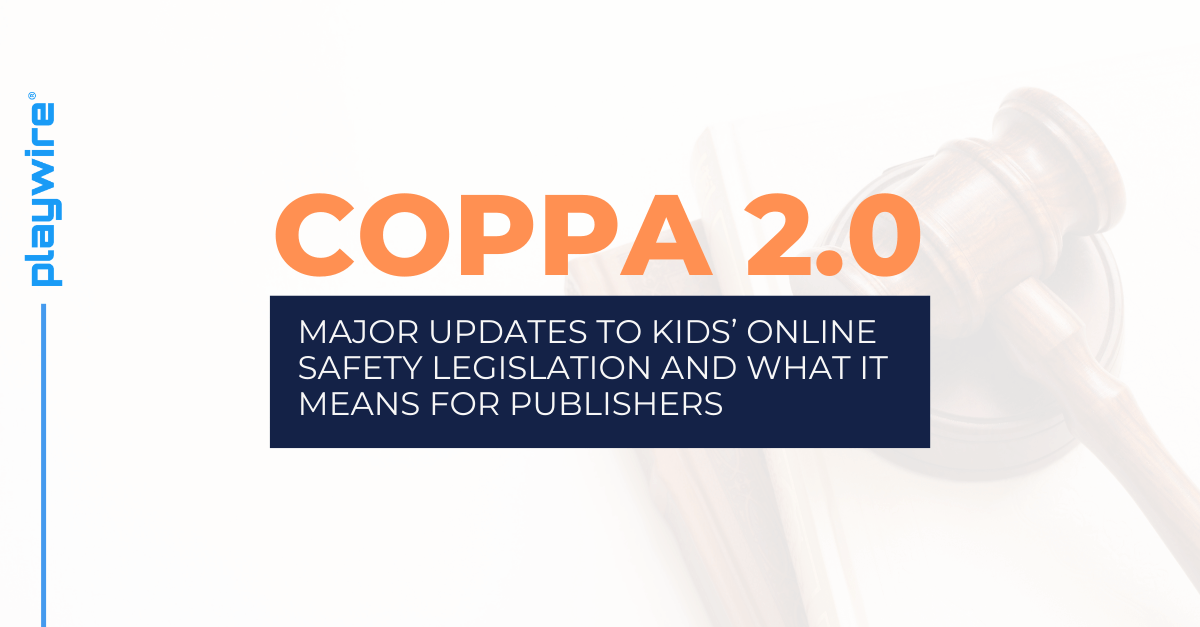

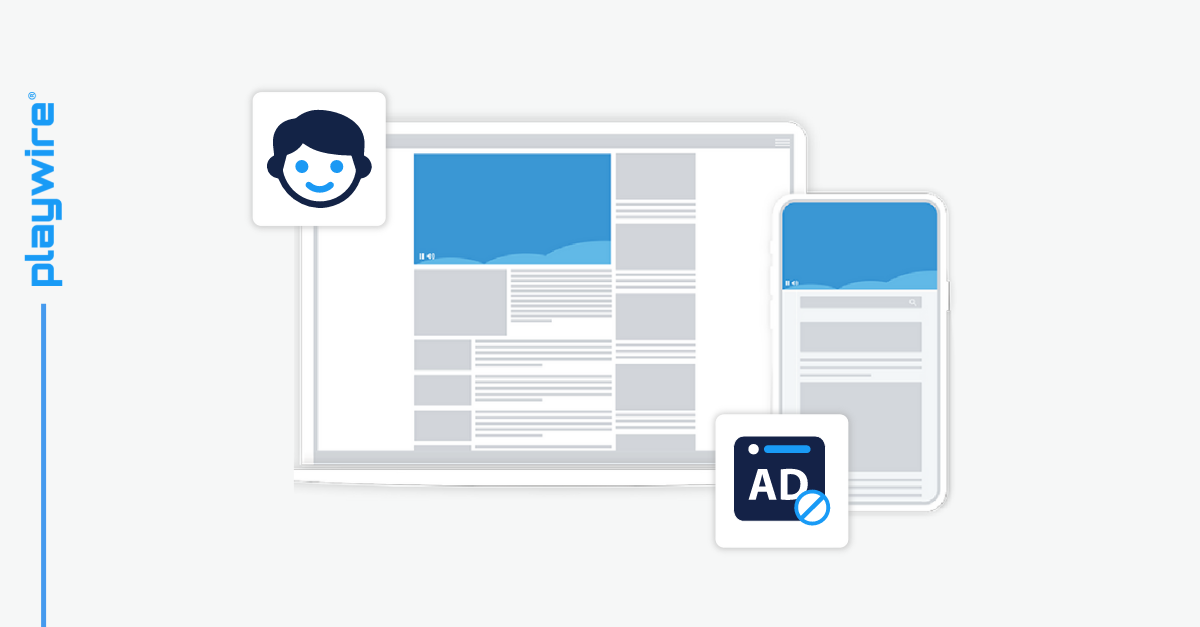
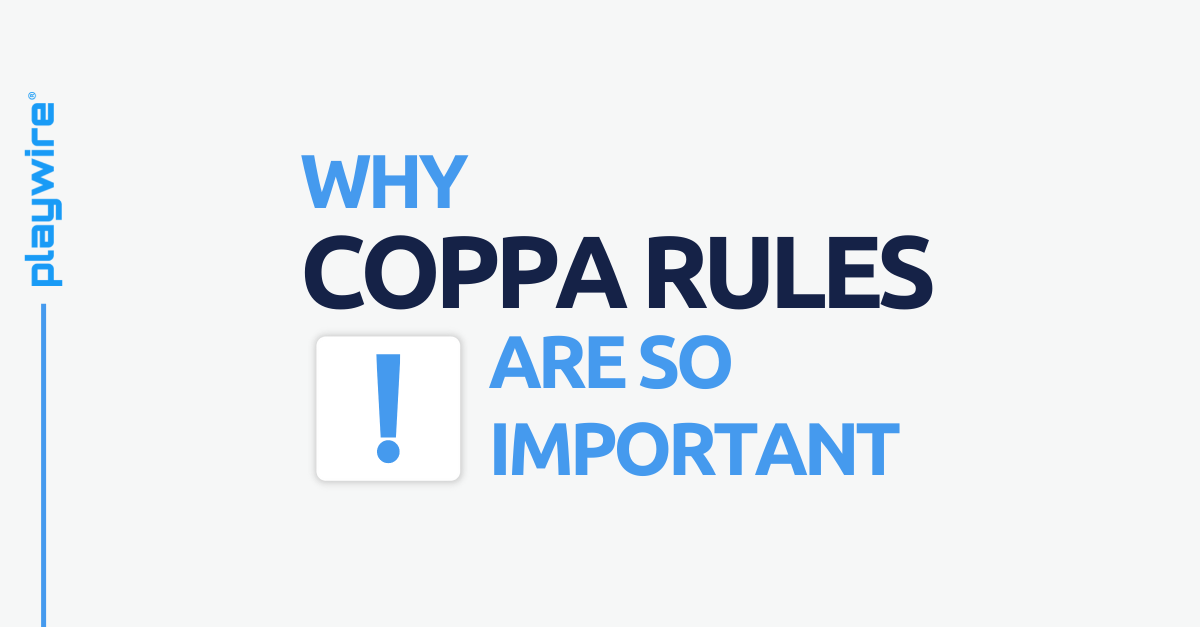
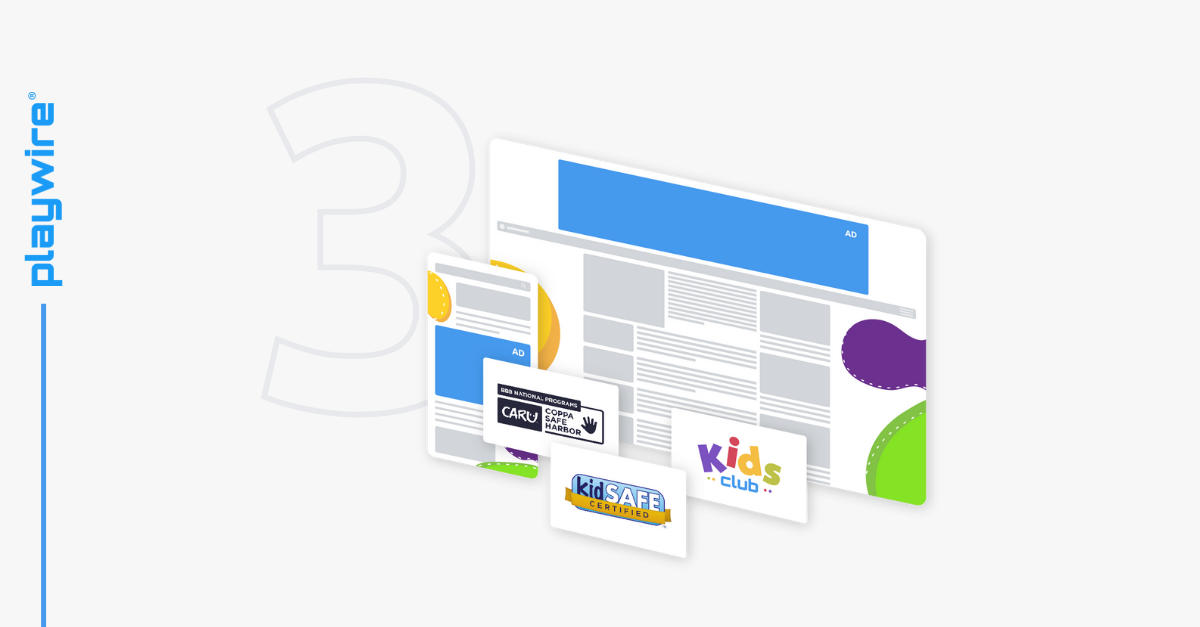
AMPLIFY YOUR AD REVENUE
Accelerate your business and uncomplicate your ad tech stack, because you deserve a partner and a platform that demands more for you.